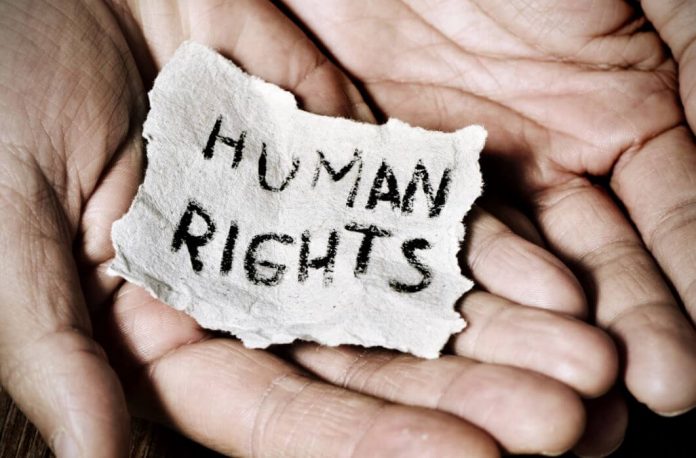The article is written by Nikhil Thakur, from the Manav Rachna University. In this article, the author has attempted to explain the sociological aspects of human rights.
Table of Contents
Introduction
Sociology and human rights are so interconnected that the principles underlying sociology are deeply rooted in the fertile soils of human rights. The establishment of the instant or the current sociology is based on the traditional intelligentsia and its close relationship with human rights. One of the famous jurists, Emile Durkheim, was not very sure about the human rights approach. Indeed, in the year 1898, he aided in the establishment of the League for the Rights of Man and its Citizens.
Karl Marx, in his theory of “on the Jewish question”, stated that human rights were never in danger or vulnerable when the only defenders of the same are political personnel and its officials. In the year 1915, another jurist George Herbert Mead stated that it is pivotal to safeguard and protect the dignity and self-determination of the public as a whole and as an individual. On the basis of sociological principles and to tackle inequality around the globe, W.E.B Du Bois stated that it is important to ensure justice to each and every individual.
Meaning
Human rights
Human rights are those rights that are available to every individual around the globe that initiates from the time one takes birth and lasts till his/her death. Human rights are the basic rights that include dignity, fairness, equality, respect and so on.
According to Merriam-Webster, human rights are the rights that are available to all individuals fundamentally. These are the rights that are conferred upon an individual from the moment he/she enters this world.
Around the globe various measures have been adopted to safeguard human rights, one such measure is the Universal Declaration of Human Rights (UDHR), 1948. Since the establishment of UDHR in 1948 more than 50 international institutions concerning human rights protection were or have been adopted. Besides this, even the Constitution of India affirms the provision for human rights and provides measures to safeguard the same.
There are a few conditions that shall be fulfilled in order to protect human rights in any society that are:
- Existence of a de jure that assures the right to self-determination and guarantees the rule of law.
- Existence of a legal system that safeguards human rights.
- Existence of an efficacious administrative body.
Sociology
The term sociology was first coined by a writer or a jurist called Comte, he described sociology as a positive concept of social life. Sociology or its various schools determine the law as a social phenomenon and analyze the law in relation to society.
Various jurists have explained sociology in their ways, like Spencer, a famous sociological jurist, explained it using Darwin’s theory of evolution in society. Ihering, Ehrlich, Leon Duguit and Roscoe Pound are a few famous sociological schools expounders.
According to sociology and its schools, the law is considered a social institution that may be advanced or improved by appropriate efforts. Most importantly, the main purpose or objective of sociology is to ensure that the work of the law is to serve and fulfil the requirements of society.
The emergence of the concept of human rights
The concept of human rights is not new, rather, it has evolved through religious, cultural, philosophical and legal development over the past. It is believed that the concept of human rights is as old as the old civilizations that had existed on earth. This is evident from the fact that nearly all the civilizations of mankind around the world have framed elaborate human rights documents.
Numerous ancient documents concerning human rights have been found, strikingly one of them is the Ashoka Edicts and the Medina Constitution, 622 A.D that was drafted to ensure peaceful cohabitation among tribes and Yathrib families.
Whereas, the real essence of human rights came to notice after World War I and World War II. Before these wars, human rights were considered not much and even there was no specific codification concerning human rights both at the domestic as well as the international level.
Human rights approach
Chiefly, there are five basic approaches to human rights that are:
Natural Law
According to this theory, natural law is more important than positive law that is framed and enacted by man. And it is said that the positive law shall be made in compliance with the natural law. The principle upon which the concept of natural law is based is equality.
Historical law
Following this theory, human rights are considered as a cultural as well as environmental function that incorporates extent and time. Besides this, there are three major repercussions that are:
- Many a time, humans are not considered as an individual if they are found outside the ambit of community.
- Historical law emphasis is less on actual opinions of the people rather emphasis more on the language, religion, etc.
- While focusing on the demarcations among the society or communities, historical law compromises human rights.
Positivist law
According to this theory, human rights are enacted and derived through an authoritative sovereign. The major conundrum of this theory is that it deplores the will of the people in enacting the law and believes that it is the sovereign upon which the law is based. Positivism looks only at nations as a subject matter of international law and nothing else, hence, it is ineffective in dealing with human rights.
Marxist law
This approach came to existence during the industrial revolution in the19th century by a famous jurist called Karl Marx. According to him, in a capitalist society, there is no existence of human rights. This approach views the evolution of human rights in society as inevitable.
Social science law
Social science theory considers human rights from the perspective of a larger social process that is working upon the community’s role in framing the doctrines. This theory utilizes scientific methods and techniques to determine the accomplishment of human rights in society.
Human rights and sociology
One of the basic issues concerning human rights is that the people do not frame their issues or grievances according to the language of the rights enshrined. One such instance is that whenever Canadians believe that there is something wrong and want restitution they recite to the institution’s democracy, Christian values, British justice and socialism.
According to sociologists, human rights is protection or an entitlement that is initiated by the community itself that inculcates: Non-governmental organisations (NGOs), social movement organisations (SMOs), intergovernmental organisations, etc. Further in exceptional conditions, the state also grants these rights to individuals.
In the year 1922, during a meeting of the Victoria School Board, one of the trustees namely Bertha P. Andrews deplored the method of demarcating Asians in the school from the non-Asian. The trustee stated such demarcation not only as a violation of fundamental doctrines of the British justice system rather of the Christian principles also.
The sociological approach towards human rights is that these rights have been evolved or developed through society and the state itself, not by mere principles.
A clear demarcation is there between the human rights laws, on the first part it is a codified law while on the other hand, it symbolises competing moral claims, and hence human rights cover within its ambit both sociological as well as the legal aspect.
According to Griffin, human rights shall be understood from the perspective of social life. It is important that the scope of human rights shall be augmented and it shall be looked beyond the ambit of universalism and shall accept the fact that each society has its rights that are established socially. The insertion of universalism in human rights confuses the way in which it is utilized as a well-defined social tradition.
Even when the advocates and judges enter into a heated debate concerning human rights, the legal aspect that is imposed or put forward is that human rights have been derived from a pre-social individual that has the right by virtue of humanity.
Different theories have defined human rights in their own way, if we look at human rights from the perspective of sociological approach, it defines human rights as anything that is linked or connected to the scope of the state and the society that assure enjoyment or realisation of those rights. It can be said that human rights are a specific category of social practice.
Sociology may play an important role in determining what is a human right in its real sense, further it aids in determining how and why human rights across the globe have emerged as a strong social force. Moreover, sociology helps in determining how human rights are utilized, how society redresses the competing rights and also helps in determining the actual reason behind the emergence of human rights in historical terms.
To better understand the social meaning of human rights, it shall be made clear that human rights are utilized in day-to-day routine practice like in schools, courts, hospitals and governmental organisations. Specifically, it means that a sociological perspective helps in understanding the development of the practice of human rights in society.
The founder and expounders of the sociological approach namely Emile Durkheim, Karl Marx and Max Weber believed that rights are nothing except a philosophical notion. These above-mentioned jurists never accepted the fact that universal values are independent of society.
Sociologists recognized the influence of human rights in society a bit later. Besides this, they attempted to understand the popularisation of human rights through societal requirements that comprise democracy and capitalism.
Another reason for the emergence of human rights may be due to the expansion of state bureaucracy and state representatives. In this way, rights serve the purpose of ensuring autonomy in a liberal society where the idea of individuality is at its peak.
According to Goodhart, human rights plays an instrumental as well as a political function. It is said, that state may be the authority that recognises or enforce the rights through appropriate legislation, but those rights and their claims are only due to the people and the movements that took place outside the state ambit, the society is the one that claims the right and state recognises them and adopt a proper method for their enforcement.
Thus, it can be said that human rights have emerged through mutual understanding and shared belief in the society that forces state authority to enact a specific law in this regard. Hence, each society has its own culture of rights.
Though human rights have universal application, they do not share a universal common understanding. It is the organisations, institutions, history and state practises that shape the rights culture.
Conclusion
The sociological aspect of human rights includes the examination of social origins and their impacts on human rights standards, practices, doctrines, procedures and institutions. The concept of sociology of human rights has recently emerged after the industrial revolution in the 19th century. The classical jurists namely Karl Marx, Max Weber and Emile Durkheim cast a cynical light on the concept of human rights while the current sociological jurist has contributed to the advancement and recognition of the notion of human rights.
Around the globe, various definitions of human rights have been provided but there is not a single definition that inculcates everything concerning human rights, even the sociological laws and its schools had failed to provide a clear and uniform definition of human rights. But a common definition of human rights as accepted by the sociologist is that human rights are anything that is connected to the state and the society at large that guarantees the enjoyments of those rights.
Reference
- https://d101vc9winf8ln.cloudfront.net/documents/26483/original/SOCI_857_-_Sociology_of_Human_Rights_-_Spring_2017_-_Dale.pdf?1507232994
- https://politybooks.com/sociology-human-rights-and-globalization/
LawSikho has created a telegram group for exchanging legal knowledge, referrals, and various opportunities. You can click on this link and join:
https://t.me/joinchat/J_0YrBa4IBSHdpuTfQO_sA
Follow us on Instagram and subscribe to our YouTube channel for more amazing legal content.
 Serato DJ Crack 2025Serato DJ PRO Crack
Serato DJ Crack 2025Serato DJ PRO Crack











 Allow notifications
Allow notifications


